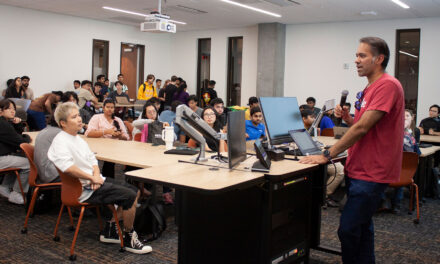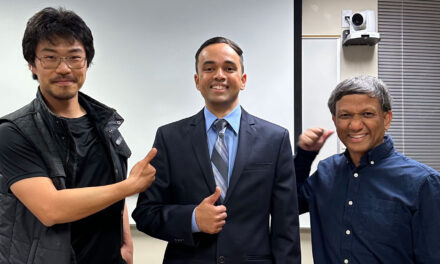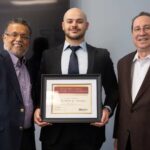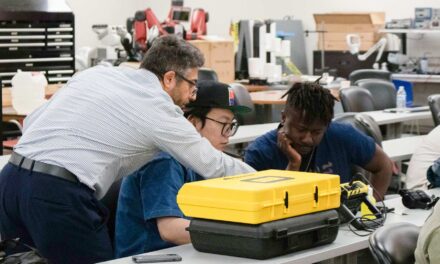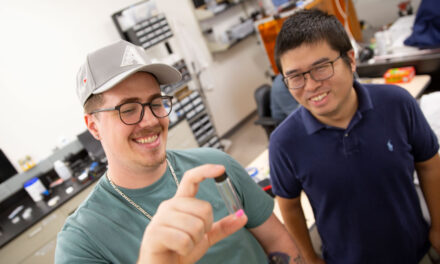
Keeping ethics on pace with high-tech evolution
October 1, 2009
An increasing lag between technological advancements and development of public policy and ethical guidelines to govern the use of emerging technologies continues to concern the nation’s leaders.
The National Science Foundation (NSF) is supporting efforts to devise ways to close that gap. The agency recently awarded a grant of $266,296 to Arizona State University’s Lincoln Center for Applied Ethics to fund the project “Adapting Law to Rapid Technological Change.”
The project team includes Brad Allenby, a professor in the School of Sustainable Engineering and the Built Environment and the ASU Lincoln Center Professor of Engineering and Ethics.
“The accelerating rate of technological evolution in areas such as robotics, biotechnology, and neurotechnology has created a serious need to better understand how global technology systems of unprecedented complexity and power can be better regulated,” Allenby says.
Peter French, Director of the Lincoln Center for Applied Ethics and the Lincoln Chair in Ethics, says the federal grant will support continuation of the center’s “Pacing Project,” which focuses on producing solutions that enable law and ethics policies to keep pace with developments in areas such as genetics, biotechnology, nanotechnology, information technology, cognitive sciences and enhancement technology.
In addition to Allenby, the project team includes: Gary Marchant, executive director of the Center for the Study of Law, Science & Technology at the Sandra Day O’Connor College of Law; Andrew Askland, the center’s director; and Joseph Herkert, the ASU Lincoln Associate Professor of Ethics and Technology in the School of Letters and Sciences.
French says the team members already are international leaders in efforts to devise systematic approaches to dealing with one of “the most important issues confronting the global society.”







